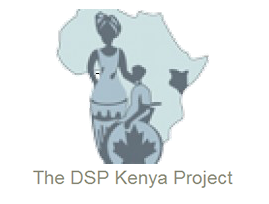5.5 – What is the difference between generic and HIV-specific outcome measures?
Table 5.5: Advantages and Disadvantages of Generic versus Disease-specific Measures
| Type of Outcome Measure | Advantages and Disadvantages |
|---|---|
|
If a generic measure is used with people living with HIV, their scores can be compared with people living with other types of illness who completed that same measure, or even to the general 'healthy' population. Examples of generic measures commonly used in HIV practice and research include:
One drawback with generic measures is that there may be unique aspects related to HIV that are not captured in a generic type of measure (e.g. lipodystrophy, HIV stigma and discrimination, and fear of disclosure). |
|
To capture disease-specific issues, researchers developed disease or HIV-specific measures to measure the extent of certain health constructs of interest for people living with HIV. Examples of HIV-specific measures are:
|
23Ware JE Jr. SF-36 health survey update. Spine (Phila Pa 1976). 2000 Dec 15;25(24):3130-9. Review. PubMed PMID: 11124729. http://www.ncbi.nlm.nih.gov/pubmed/11124729.
24Ware JE Jr, Gandek B. Overview of the SF-36 Health Survey and the International Quality of Life Assessment (IQOLA) Project. J Clin Epidemiol. 1998 Nov;51(11):903-12. PubMed PMID: 9817107. http://www.ncbi.nlm.nih.gov/pubmed/9817107.
25Fisher A.G., Bray Jones K: Assessment of Motor and Process Skills. Vol. 1: Development, Standardization, and Administration Manual (7th ed.) Fort Collins, CO: Three Star Press; 2010a.
26Fisher A.G., Bray Jones K. Assessment of Motor and Process Skills. Vol. 2: User Manual (7th ed.) Fort Collins, CO: Three Star Press; 2010b.
27Radloff LS. The CES-D scale: a self-report depression scale for research in the general population. Appl. Psychol. Measure. 1977;1(3):385-401. http://apm.sagepub.com/content/1/3/385.full.pdf+html.
28Justice AC, Holmes W, Gifford AL, Rabeneck L, Zackin R, Sinclair G, Weissman S, Neidig J, Marcus C, Chesney M, Cohn SE, Wu AW; Adult AIDS Clinical Trials Unit Outcomes Committee. Development and validation of a self-completed HIV symptom index. J Clin Epidemiol. 2001 Dec;54 Suppl 1:S77-90. PubMed PMID: 11750213. http://www.ncbi.nlm.nih.gov/pubmed/11750213.
29Wu AW, Hays RD, Kelly S, Malitz F, Bozzette SA. Applications of the Medical Outcomes Study health-related quality of life measures in HIV/AIDS. Qual Life Res. 1997a Aug;6(6):531-54. Review. PubMed PMID: 9330553. http://www.ncbi.nlm.nih.gov/pubmed/9330553.
30Wu AW, Revicki DA, Jacobson D, Malitz FE. Evidence for reliability, validity and usefulness of the Medical Outcomes Study HIV Health Survey (MOS-HIV). Qual Life Res. 1997b Aug;6(6):481-93. Review. PubMed PMID: 9330549. http://www.ncbi.nlm.nih.gov/pubmed/9330549.
31Wu AW, Rubin HR, Mathews WC, Ware JE Jr, Brysk LT, Hardy WD, Bozzette SA, Spector SA, Richman DD. A health status questionnaire using 30 items from the Medical Outcomes Study. Preliminary validation in persons with early HIV infection. Med Care. 1991 Aug;29(8):786-98. PubMed PMID: 1875745. http://www.ncbi.nlm.nih.gov/pubmed/1875745.
32O'Brien KK, Davis AM, Gardner S, Bayoumi AM, Rueda S, Hart TA, Cooper C, Solomon P, Rourke SB, Hanna S; OHTN Cohort Study Team. Relationships Between Dimensions of Disability Experienced by Adults Living with HIV: A Structural Equation Model Analysis. AIDS Behav. 2012 Nov 7. [Epub ahead of print] PubMed PMID: 23132208. http://www.ncbi.nlm.nih.gov/pubmed/23132208.
33O'Brien KK, Bayoumi AM, Bereket T, Swinton M, Alexander R, King K, Solomon P. Sensibility assessment of the HIV Disability Questionnaire. Disabil Rehabil. 2013 Apr;35(7):566-77. doi: 10.3109/09638288.2012.702848. Epub 2012 Jul 21. PubMed PMID: 22816434. http://www.ncbi.nlm.nih.gov/pubmed/22816434.
34O'Brien KK, Solomon P, Bayoumi AM. Measuring disability experienced by adults living with HIV: assessing construct validity of the HIV Disability Questionnaire using confirmatory factor analysis. BMJ Open. 2014 Sep 1;4(8):e005456. doi: 10.1136/bmjopen-2014-005456. PubMed PMID: 25180054; PubMed Central PMCID:PMC4156819.
35O'Brien KK, Solomon P, Bergin C, O'Dea S, Stratford P, Iku N, Bayoumi AM. Reliability and validity of a new HIV-specific questionnaire with adults living with HIV in Canada and Ireland: the HIV Disability Questionnaire (HDQ). Health Qual Life Outcomes. 2015 Aug 12;13:124. doi: 10.1186/s12955-015-0310-9. PubMed PMID: 26263898; PubMed Central PMCID: PMC4542093.
36O'Brien KK, Bayoumi AM, Stratford P, Solomon P. Which dimensions of disability does the HIV Disability Questionnaire (HDQ) measure? A factor analysis. Disabil Rehabil. 2015;37(13):1193-201. doi: 10.3109/09638288.2014.949358. Epub 2014 Aug 13. PubMed PMID: 25116628.

 Previous Page
Previous Page




